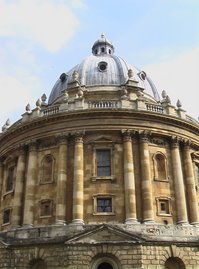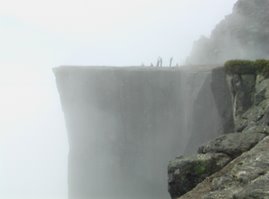 Monday: May 21.
Monday: May 21. an entry en route to Nairobi
A red sun sets over Sudan to the west. An hour ago it was an orange squeezed over the horizon; suddenly the orange burst into flame at the sky's edge, scattering flames that flickered, then turned to blood.
And to think of all the blood shed in the Sudan--the thousands, the millions who fell under the shadow of Cush and Meroë, the dark and cursed empire whose wars will not end. I just finished Emma's War, a reporter's memoirs from Sudan and the story of the southern Sudanese oppression, rebellion, division, famine, and genocide. At least two million have died in the warfare that has torn the country in two since the late eighties. It has been a war of religions, tribes, factions, ideologies, and oil. But all of this is shrouded in the confusion of death.
To think that a year before I was born into a loving home in North Carolina, thousands upon thousands died in the Kinka massacres at Ed-Daien. Thousands more lost their families to the cruel slave trade, left home with no money and few possessions, and wandered the drying plains of Darfur. In the year of my birth, a great famine swept through this land again, drying skin off the bones of the orphan boys who returned to the haunt of Ed-Daien to find their families. Others caught malaria, tuberculosis, meningitis, diarrhea. Again, thousands died, terribly, stranded, alone.
Constellations bloom out the window of this two-prop 20-seater from Lokichoggio. We spent four days in the northern corner of Kenya at the compound of the Middle East Reformed Fellowship. Six months ago, MERF sent a plane into southern Sudan to pick up church leaders who wanted to be trained in the Scripture. Some villages sent the local pastor on the plane. Others grabbed whatever twenty-something, daring kid that wanted to go. It was a once-in-a-lifetime chance, for many.
 Nearly all 45 men fought in the civil war. They all have stories. One guy lifted up his shirt for us and began to show us his 27
Nearly all 45 men fought in the civil war. They all have stories. One guy lifted up his shirt for us and began to show us his 27gun wounds. More importantly, though, they all have hope. They're at the end of six months of training; they are eager to
get home. After half a year of intense study in the Bible, they have a wisdom and unity about them now that could rally the confused southern churches. This is early church stuff.
 Sudan has peace now. It was signed in 2004, but a referendum in 2010 will likely lead to conflict again, say the men here. The south plans to split from the north to create the "New Sudan." Their current leader is Salva Kiir, a Dinka tribesman, like his predecessor John Garang. Salva is strong, the people say; but he's not John Garang
Sudan has peace now. It was signed in 2004, but a referendum in 2010 will likely lead to conflict again, say the men here. The south plans to split from the north to create the "New Sudan." Their current leader is Salva Kiir, a Dinka tribesman, like his predecessor John Garang. Salva is strong, the people say; but he's not John Garang Now is the time that Sudan needs strong leaders. Now, perhaps, more than ever. Now is a chance to end the cycle of oppression, revolution, and blood that has gone on for hundreds of years. The south can escape, if they will find their leaders.And so, the church has deemed it wise to train up 45 men--elders, pastors, and evangelists--in the knowledge of the Bible. In a strange turn from the warlords of the past, we look to them for strong leadership. Only in the church will the South find peace.
Now is the time that Sudan needs strong leaders. Now, perhaps, more than ever. Now is a chance to end the cycle of oppression, revolution, and blood that has gone on for hundreds of years. The south can escape, if they will find their leaders.And so, the church has deemed it wise to train up 45 men--elders, pastors, and evangelists--in the knowledge of the Bible. In a strange turn from the warlords of the past, we look to them for strong leadership. Only in the church will the South find peace.




No comments:
Post a Comment